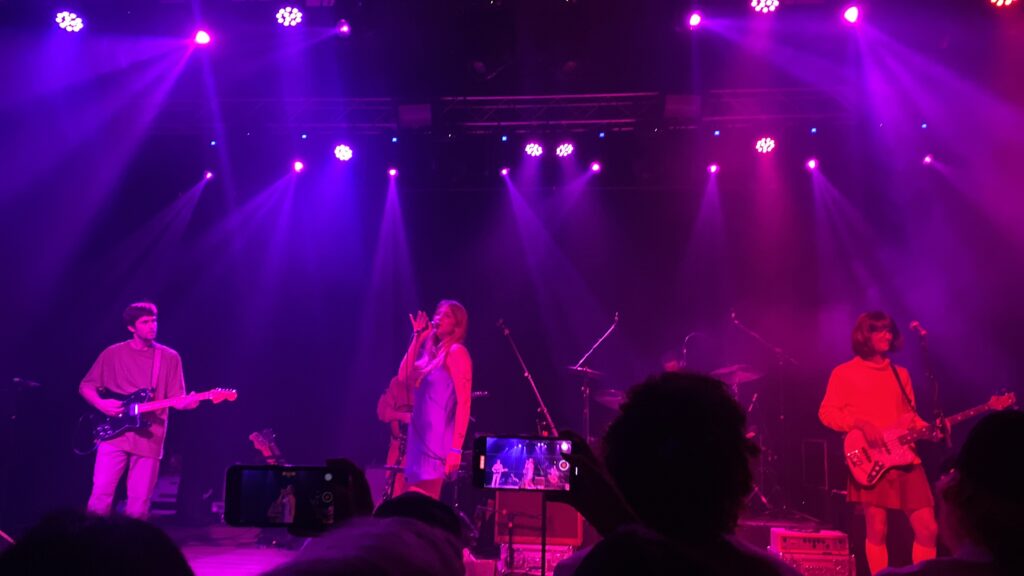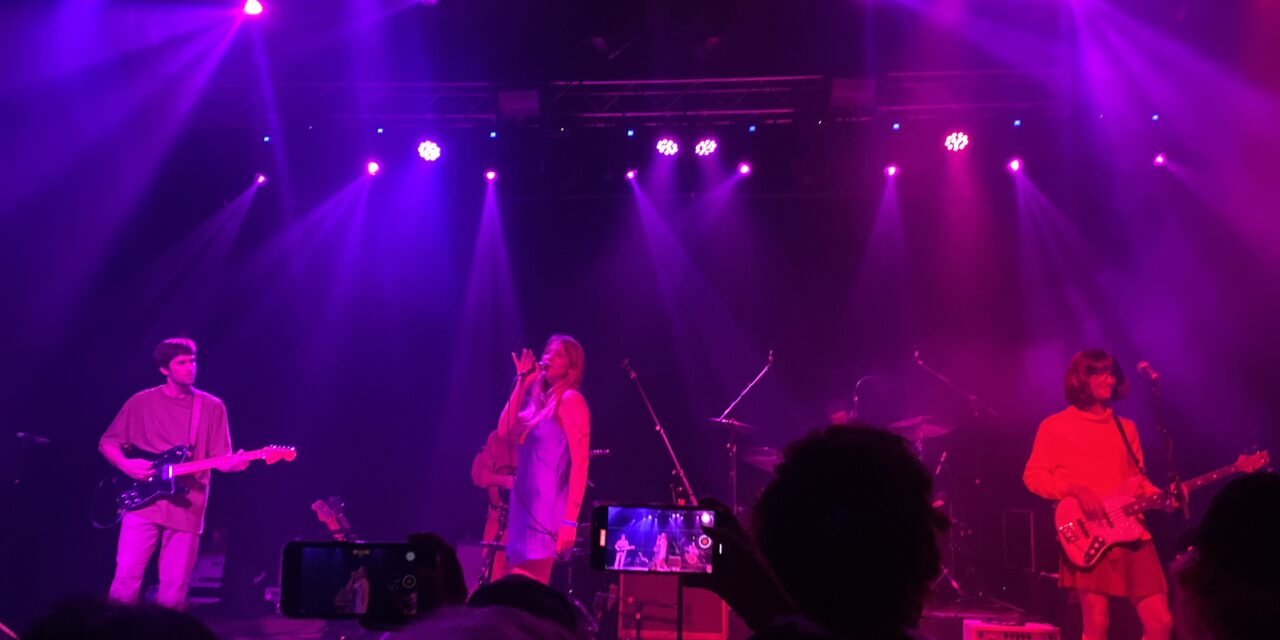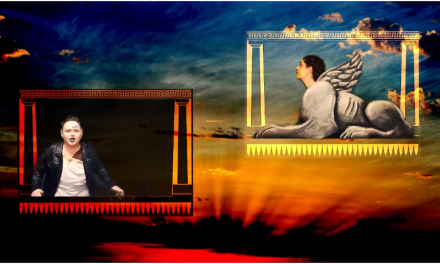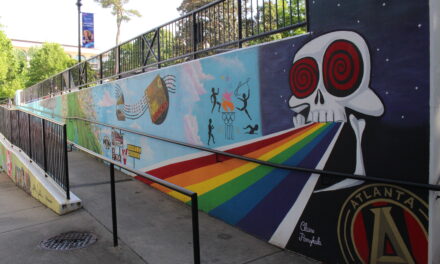
(Sophia Peyser/Managing Editor)
The “Hell” section of The Masquerade was a walking contradiction during Slow Pulp’s Oct. 28 set, playful costumes clashing with contemplative music. The crowd delivered on the band’s request to dress in full costume on Saturday night, with angel wings and vampire cloaks swishing between concertgoers and lonesome animal cosplayers drifting through the venue. “Scooby-Doo” (1969) theme music ushered the band on stage, who had dressed as the “Mystery Inc.” gang — the drummer, Teddy Matthews, was practically unable to see out from under his ridiculous Scooby-Doo head.
Visually, the concert was silly. But Slow Pulp’s setlist, with songs from the band’s recent album “Yard” interspersed with their older hits, was deep and introspective. This intimacy is thanks to the simple yet powerful songwriting of lead singer and guitarist Emily Massey and folky melodies played by bassist Alex Leeds and guitarist Henry Stoehr.
The band commenced their tour on Oct. 4, a few days after the release of their Sept. 29 LP “Yard,” which Massey wrote in her father’s Wisconsin cottage. The songs are intimate and gentle, the kind of music you can only produce all alone in a rural cottage, when nobody is around to hear your musings on your family relationship on the title song or on how romance can make you feel like a prize fish on the aptly named song “Fishes.”
Pensive, nuanced songs like these translated perfectly to the intimate Masquerade “Hell” stage, which holds only 550 people and a dim, barely-elevated stage. Massey was practically in the audience with us, her Daphne Blake outfit rendering her slightly less ethereal than usual.
Massey’s voice distracted immediately from the humor of her bright purple slip dress and green necktie — whiny, pleading and clear when she sang lyrics, like “My mouth’s at its end / Trying to say it’s love that I’m hiding” in the heartbreaking melody “Trade It” (2020).
Even “At Home” (2018), the most energetic song played on Saturday, disguised devastating lyrics about mistakenly returning to a relationship with guitar-heavy, screamable melodies. Still, the crowd didn’t allow melancholic melodies about failed romances and self-doubt dampen their Halloweekend evening, screaming, “Should I try it all over again?” into Massey’s outstretched microphone.
Slow Pulp was the perfect Halloweekend interlude. Late in the show, Massey alerted the audience to the full moon and then said, “I’m lucky enough to have my cycle match up with the moon!” Not even a campy costume could suppress the witchy energy that’s so innate to the women of modern-day indie music — I’m thinking of Weyes Blood, who prances across the stage in a long slip that evokes images of ancient mythological goddesses. Slow Pulp, similarly, leaned heavily on hazy, magical lighting and shoegaze-inspired guitar lines. Onstage, Massey and her crew glowed in iridescent light. Their music filled the small venue like unbelievably gorgeous white noise, with the lyrics lingering on stage long after they left. The ghosts of Halloween paled in comparison to those of Slow Pulp’s lyrics — lost lovers who moved on in “Steel Birds” (2018) and past selves who grew up in “MUD.”
Slow Pulp ended, perhaps in a moment of irony, with “Montana” (2020), which begins with the lyrics, “I’m a bad mess / I’m a loner with no plans.” The band’s stacked tour plans beg to differ. Contrary to the song’s next lyric, “Go back home / Try again / Again,” Slow Pulp will spend the next few months traveling across the United States, Canada and Europe. Catch them live for a night of euphoric depression, quiet rage, devastating “Scooby-Doo” sets and other paradoxes.
Sophia Peyser (25C) is an environmental science and english + creative writing major from New York City. In addition to managing the Opinion and Editorial Board sections of the Wheel, she works as an intern at Science for Georgia and a radio DJ at WMRE. In her free time, she loves thrifting in remote corners of Atlanta and drinking lavender lattes at Victory Calamity + Coffee.







